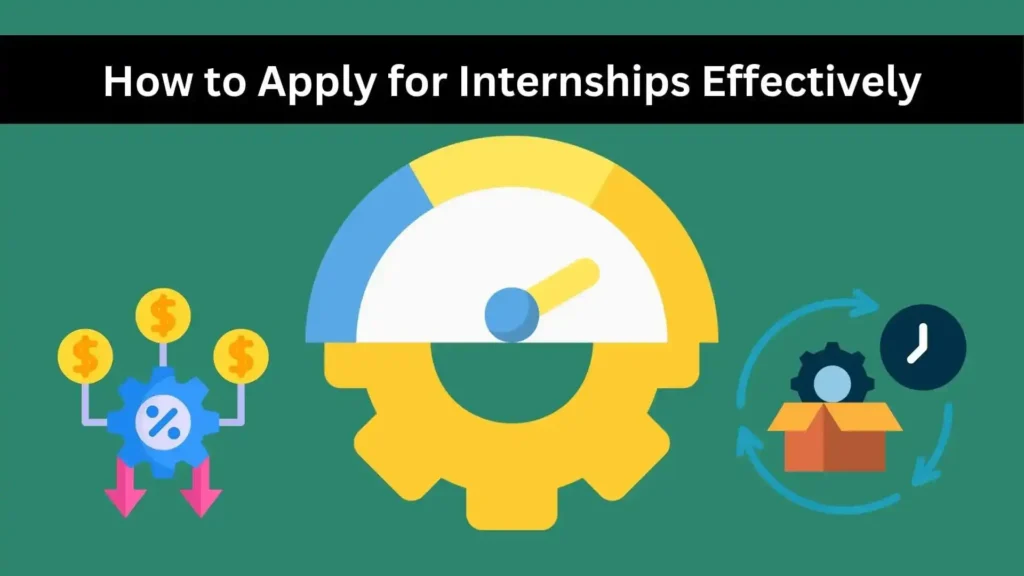Internships are one of the best ways to gain hands-on experience, build your professional network, and make yourself a strong candidate for full-time positions. For fresh graduates, internships offer an excellent stepping stone into the workforce. However, finding the right internship and making the most of it requires planning, commitment, and the right mindset.
In this guide, we’ll walk you through everything you need to know about finding the perfect internships for fresh graduates and tips for succeeding once you secure it.
Table of Contents
1. Why Internships Are Important for Fresh Graduates
Internships offer numerous benefits, especially for those just entering the job market. Here’s why you should consider doing one:

- Gain Real-World Experience: Internships provide you with hands-on experience in a professional setting. This experience can help bridge the gap between academic learning and the skills employers are looking for.
- Enhance Your Resume: Employers often prefer candidates with practical experience, and having an internship on your resume demonstrates your commitment to learning and your willingness to gain experience in your field.
- Build Your Professional Network: Internships give you the opportunity to connect with professionals in your industry. Networking can lead to job offers or recommendations down the line.
Explore Career Options: As a fresh graduate, you may still be figuring out what you want to do long-term. Internships allow you to explore different career paths and industries to help you make informed decisions about your future.
2. How to Find the Right Internship
Finding the right internship can be a challenging process, but with the right strategy, you can increase your chances of success.

Where to Look for Internships:
University Career Center: Most universities offer internship programs and have partnerships with companies looking for interns. Check your university’s career center for listings.
Job Search Websites: Websites like LinkedIn, Indeed, Glassdoor, and Internships.com often have listings for internships. Make sure to filter your search results by location, industry, and experience level.
Company Websites: Many companies post internship openings directly on their websites. If you have specific companies in mind, be sure to check their careers page regularly.
Networking: Reach out to professionals in your field of interest through LinkedIn or at networking events. Often, internships are never officially advertised, and knowing someone in the industry can give you a competitive edge.
Internship Fairs and Career Events: Attend internship fairs or career events in your area. These events are often a great way to meet recruiters, learn about internship opportunities, and make a positive impression.
3. Step-by-Step Guide to Finding the Perfect Internship
Finding the perfect internship can be a game-changer for your career, offering you hands-on experience, industry exposure, and a chance to build a professional network. However, navigating the internship search process requires more than just sending out applications—it demands strategic planning, research, and preparation.
In this step-by-step guide, we’ll break down everything you need to know, from identifying the right opportunities and crafting a standout application to acing interviews and securing the internship that aligns with your career goals. With the right approach, you can take the first step toward a successful professional journey.
Key Steps in the Internship Application Process:
Craft a Tailored Resume: When applying for an internship, make sure your resume highlights relevant coursework, projects, and skills. If you have any previous internship experience or volunteer work, be sure to include that as well.
Write a Strong Cover Letter: Your cover letter should express your enthusiasm for the internship, your skills, and why you’re interested in that specific company. Avoid generic cover letters—tailor each one to the position and company.
Submit a Professional Portfolio (if applicable): If you’re applying for a role in design, writing, or any field that requires a portfolio, make sure it’s polished and includes relevant work.
Prepare for the Interview: Treat an internship interview just like any other. Research the company, understand the role, and be ready to discuss how your skills make you a good fit. Practice answering common interview questions.
Tips for Succeeding During Your Internship
Once you’ve landed an internship, your work isn’t over. To ensure that your internship is successful and sets you up for a full-time job, follow these tips:

Be Proactive: Don’t wait for tasks to be assigned to you—take the initiative to ask for projects or responsibilities that will allow you to learn more.
Seek Feedback: Regularly ask for feedback from your supervisor to understand your strengths and areas for improvement. Constructive criticism can help you grow and improve.
Network and Build Relationships: Internships are a great opportunity to build your professional network. Take time to connect with people in your department and other areas of the company. Attend networking events or team meetings when possible.
Demonstrate Your Value: Employers want to know how you can contribute. Make sure you’re producing quality work, meeting deadlines, and showing enthusiasm for the job. Going above and beyond will make you stand out.
Learn Continuously: Take every opportunity to learn new skills or industry insights. Whether it’s learning a new tool, observing how things work, or asking questions, a willingness to learn will make you a valuable intern.
4. Post-Internship Strategies to Kickstart Your Career
Completing an internship is a significant milestone, but it’s just the beginning of your career journey. Post-internship strategies are crucial for turning that valuable experience into long-term professional success. From updating your resume to building connections and leveraging your newfound skills, the steps you take after your internship can set the tone for your career trajectory.
Whether you’re aiming to secure a full-time role, explore new opportunities, or strengthen your professional network, having a well-thought-out plan ensures you make the most of your internship experience and position yourself as a strong candidate in the job market.
What to Do After Your Internship
After your internship ends, it’s important to reflect on your experience and take steps to turn your internship into a full-time opportunity.
How to Leverage Your Internship:
Request a Full-Time Offer: If you’ve done a great job during your internship, express your interest in a full-time position. Some companies may have post-internship programs or hiring programs for interns.
Stay in Touch: Even if the company doesn’t have openings immediately, keep in touch with the people you worked with. Connect with them on LinkedIn and send occasional updates about your career.
Add Your Internship to Your Resume: Don’t forget to update your resume with your internship experience. Highlight any major projects or achievements you contributed to during the internship.
FAQs About Internships for Fresh Graduates
Q: Do I need previous work experience to get an internship?
A: Not necessarily. While prior work experience is beneficial, many internships are designed for students or fresh graduates with limited professional experience. Focus on highlighting your academic achievements, volunteer work, and any skills you’ve gained through school or extracurricular activities.
Q: How long do internships typically last?
A: The duration of internships varies. Some internships last a few weeks, while others may last several months. Typically, internships are offered in the summer or during breaks between academic semesters, but they can also be available year-round.
Q: Are internships paid?
A: Internships can be paid or unpaid, depending on the company and industry. It’s important to verify whether the internship is paid before accepting the offer. Paid internships are often preferred, but unpaid internships can also provide valuable experience.
Q: What should I do if I don’t get the internship I applied for?
A: Don’t be discouraged. Keep applying to other opportunities, and use any feedback you receive to improve your application process. Networking and seeking advice from others in your field can also open up new internship opportunities.
Q: What should I do if I don’t get the job after completing the internship?
A: Keep applying to other opportunities, and use our article on “How to Build a Winning Resume for Fresh Graduates”. This will help you to review your resume, where you are lacking and need to improve your skills, include internship work done and reorganize your resume.
Conclusion
Internships are an invaluable resource for fresh graduates looking to build their careers. They provide hands-on experience, networking opportunities, and a chance to make a lasting impression on potential employers. By researching internship opportunities, applying effectively, succeeding during your internship, and leveraging your experience afterward, you can set yourself up for long-term career success. Don’t hesitate to start your internship journey—your future self will thank you!
Note:- There is an interested article written about “Navigating the Job Market: Top Tips for Fresh Graduates in 2025” on our blog website. You can study and prepare yourself the interview preparation after your graduation and/or internship is completed.
Join Our Community: Stay connected and never miss an update! 👉 Join our WhatsApp community for real-time tips and discussions, and subscribe to our YouTube channel for expert advice, tutorials, and more. Let’s grow together! 🎯





